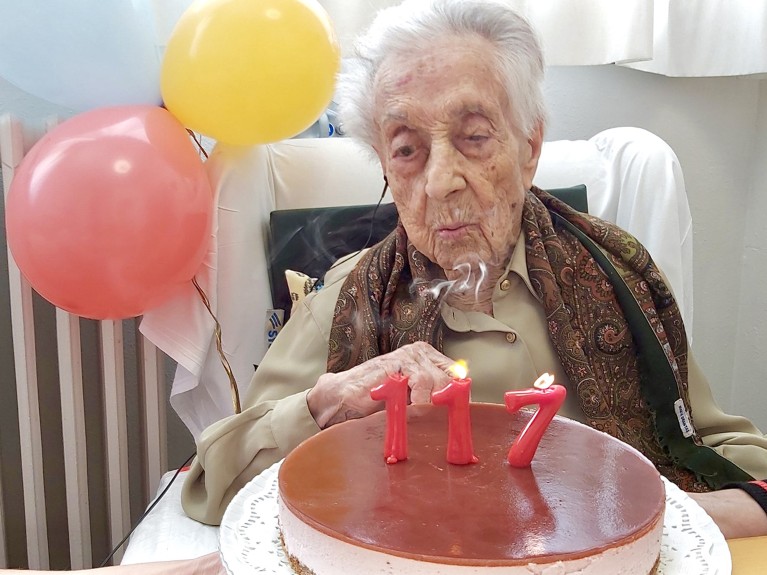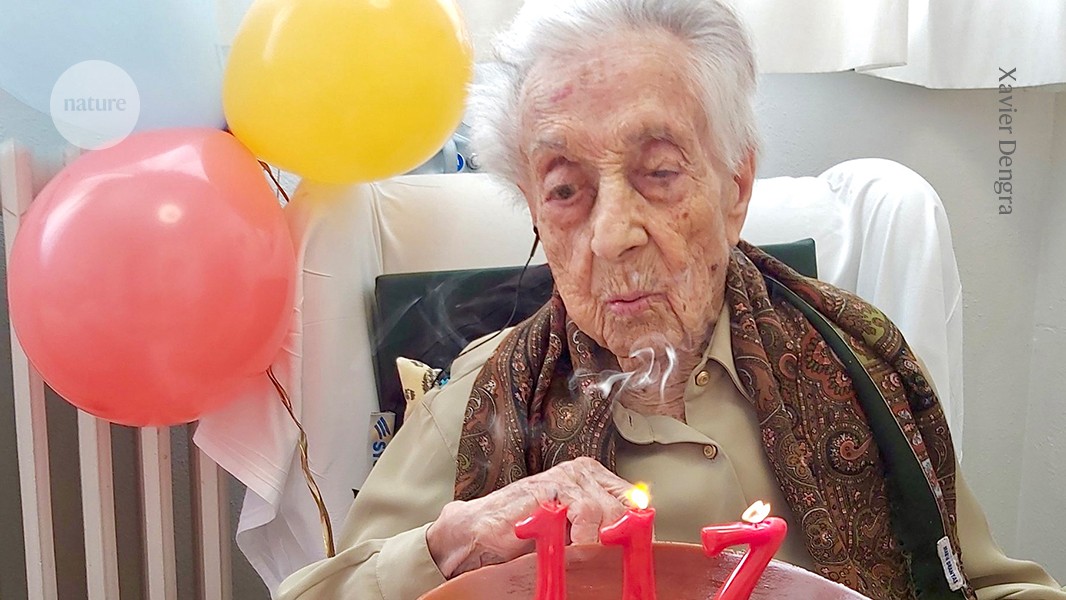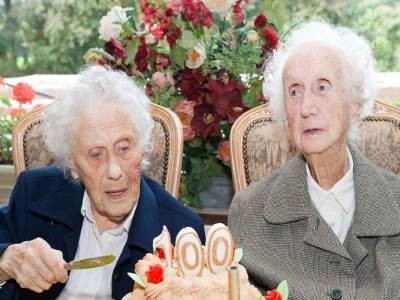
Maria Branyas Morera had been verified as the oldest living person when she died last year at age 117.Credit: Xavier Dengra (Public Domain)
Maria Branyas Morera lived to the age of 117 with a bit of genetic luck and a healthy diet that included daily yogurts, according to a study published today in Cell Reports Medicine1. During her final year — she died on 19 August 2024 — she was verified as the oldest living person, a feat that drew the attention of researchers who explore the biology of ageing.
“We wanted to learn from her particular case to benefit other people,” says Manel Esteller, a physician specializing in genetics at the University of Barcelona in Spain.
What’s the secret to living to 100? Centenarian stem cells could offer clues
At the time, Branyas was living in the small town of Olot, in the Catalonia region of Spain, where she enjoyed reading books, playing with dogs and spending time with friends and family, including her two daughters — both in their 90s. Over several encounters with Branyas and her family, Esteller and his colleagues collected samples of her blood, saliva, urine and stool that provided insights into her unique physiology, including her genetics, metabolism and gut microbiome.
The supercentenarian was happy to collaborate. “She was a very humble person,” Esteller recalls. “She said: ‘My only merit is that I’m alive’.”
The researchers compared Branyas’s genetic, metabolomic and other profiles with those of women of various ages living in the same region. One of the main insights from the work, Esteller says, is that it is possible to distinguish molecular changes that happen in the body because of ageing from those that occur because of poor health.
For instance, the research team learnt that Branyas’s telomeres — the stretches of repetitive DNA that protect the ends of chromosomes — were exceptionally short. Telomeres naturally shorten with age, and unusually short telomeres have been associated with age-related diseases. But Branyas had no such illnesses. “This is telling us that the loss of telomeres is not necessarily associated with disease, it’s simply associated with being old,” Esteller says.
Mayana Zatz, a geneticist at the University of São Paulo in Brazil who studies the genetics of healthy centenarians, says the study is thorough but notes that conclusions that are based on a single individual are limited. “It would be interesting to compare the findings with supercentenarians in other populations,” she says.



